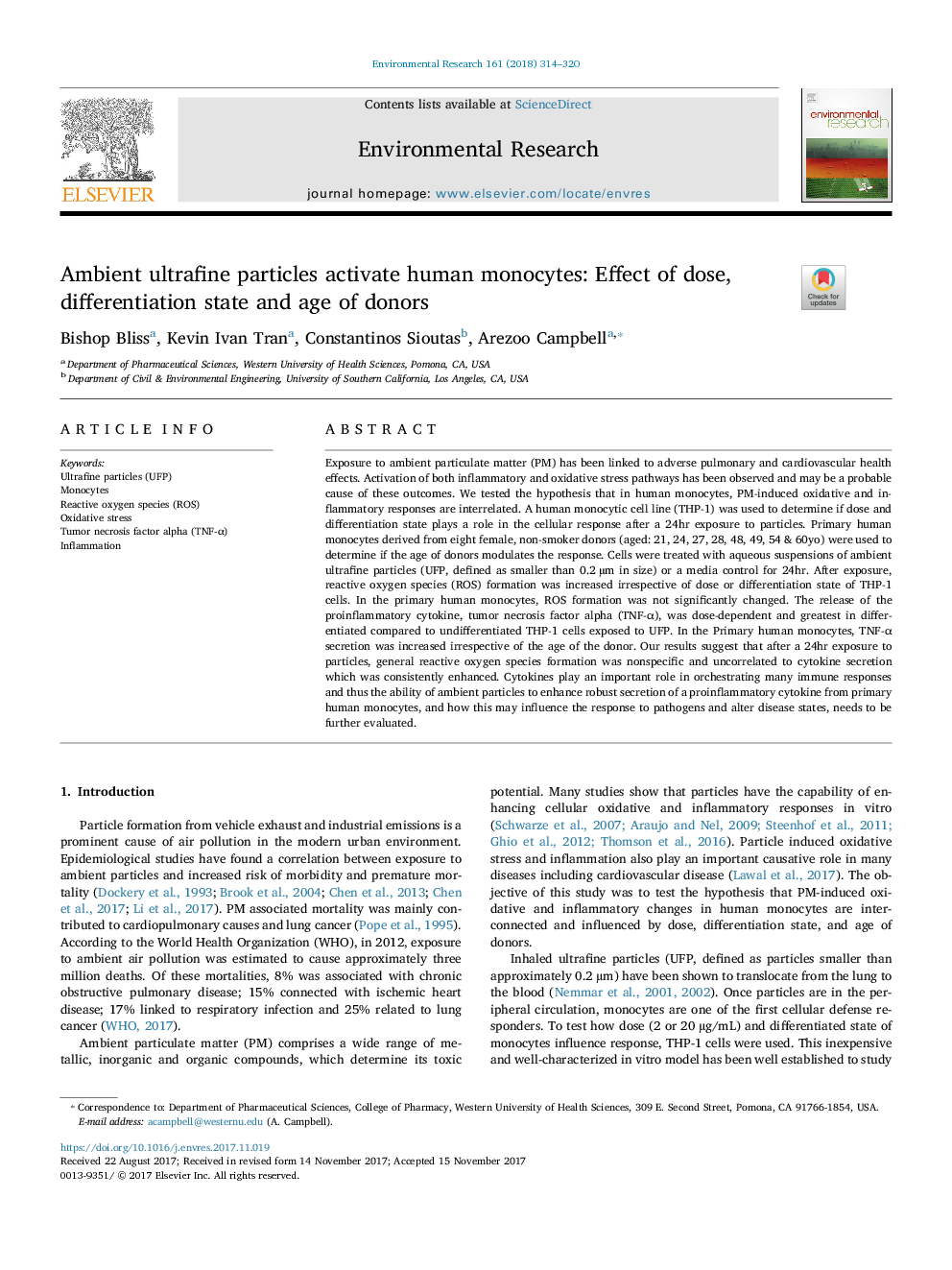ترجمه فارسی عنوان مقاله
ذرات فوقفعال محیطی مونوسیتهای انسانی را فعال می کنند: اثر دوز، وضعیت تمایز و سن اهداکنندگان
عنوان انگلیسی
Ambient ultrafine particles activate human monocytes: Effect of dose, differentiation state and age of donors
| کد مقاله | سال انتشار | تعداد صفحات مقاله انگلیسی |
|---|---|---|
| 158408 | 2018 | 7 صفحه PDF |
منبع

Publisher : Elsevier - Science Direct (الزویر - ساینس دایرکت)
Journal : Environmental Research, Volume 161, February 2018, Pages 314-320

